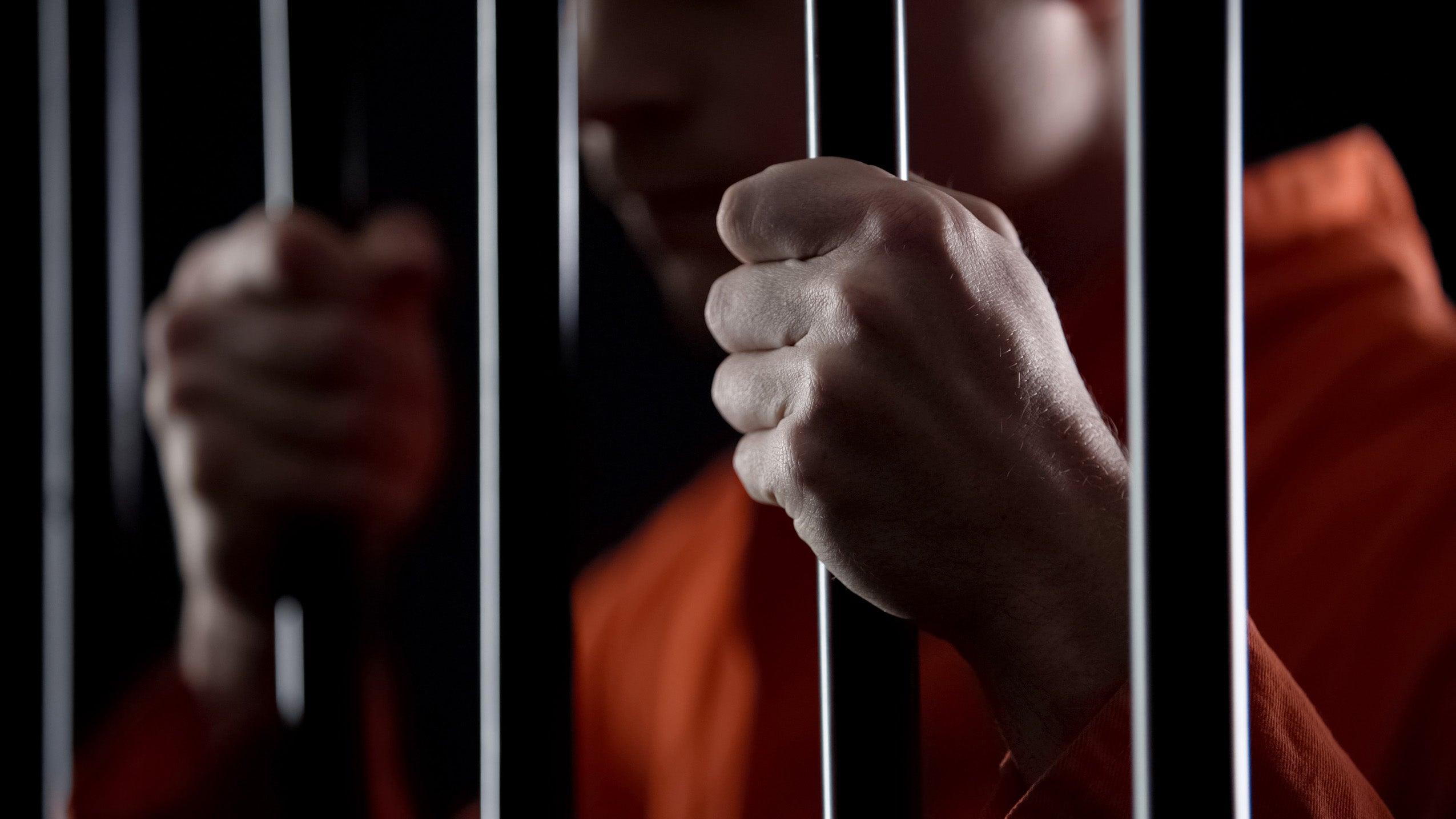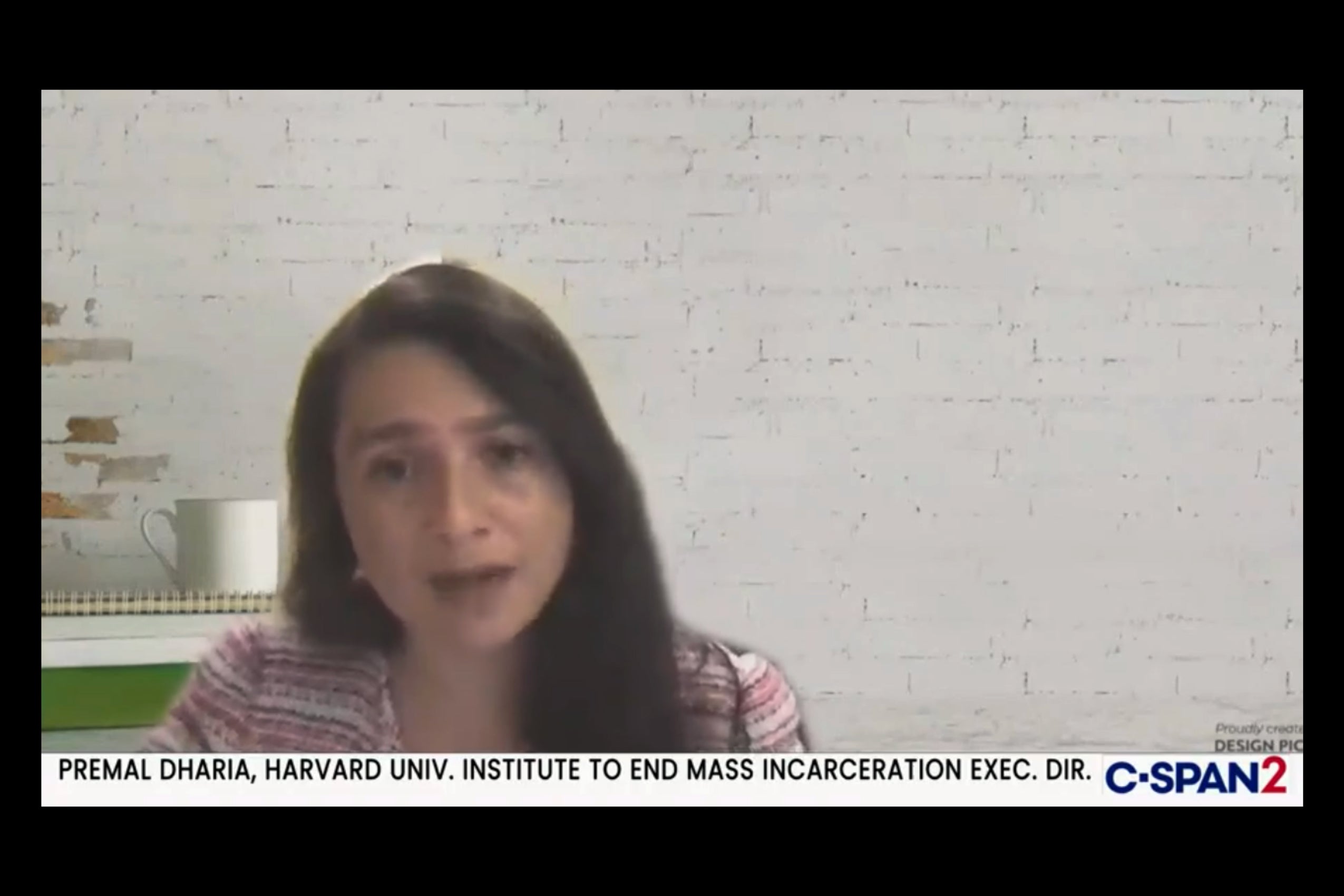
The United States is “addict[ed] to incarceration and punishment,” says Premal Dharia, executive director of Harvard Law School’s Institute to End Mass Incarceration. “This is not an accident, and it did not just happen on its own. We make choices every day — political choices, policy choices, cultural choices — that shape our systems. The pretrial component of our criminal legal system is not just in need of reform, but serves, in many ways, as the catalyst for so many other problems.”
In March, Dharia testified before the House of Representatives Subcommittee on Crime, Terrorism, and Homeland Security, alongside activists, public defenders, and those with personal experience with incarceration on what Dharia says are important changes that could reduce the number of people behind bars and lessen the system’s harm on individuals, families, and communities.
“I was honored to be asked to testify,” Dharia said in an interview. “I’m really heartened that the House is considering a range of issues in this area, and also that the other witnesses reflected a diverse set of experiences and backgrounds, including former public defenders and someone who has himself been incarcerated. These kinds of reforms to the pretrial system will not, on their own, fix the larger crisis we are in. And the goal, of course, is to end mass incarceration, not to make it more fair. But certain reforms can make inroads toward the kind of change we need for more freedom, more health, and less harm in the longer term.”
The U.S. incarcerates more people than anywhere else in the world, says Dharia. And there are stark racial disparities even at this early stage in the process, when people are detained prior to trial.
“Across the country, Black and brown people are at least 10-25% more likely than white people to be detained pretrial or to have to pay money bail. Young Black men are about 50% more likely to be detained pretrial than their white counterparts,” explained Dharia.
It isn’t difficult to understand why incarceration — even for a short period of time — can have devastating consequences, she says: “Just three days of pretrial detention is enough to upend a person’s housing, employment, financial stability, and family wellbeing.”

In her full written testimony, Dharia identified several modifications to the pretrial process that she says would have a significant impact on peoples’ lives, beginning with plea agreements.
“Approximately 98% of criminal convictions in federal courts are produced by a guilty plea, with high rates of guilty pleas in states as well … Nearly every single person is in a prison because they pled guilty,” she wrote.
This is because the government can leverage tools that a defendant cannot, wrote Dharia. “Prosecutors can pursue pretrial detention, they can up-charge cases, they can threaten offenses that carry mandatory minimum sentences, they can withhold discoverable material, they can obscure police misconduct.”
Discovery is the process by which information about a person’s case is shared, and Dharia says the current system is unfairly weighted toward the prosecution in criminal cases. “Despite the stakes being critically higher in criminal cases [than in civil ones], a far more secretive and imbalanced approach is taken, in which prosecutors can withhold a number of items from the defense and are only obligated to reveal certain categories of information and evidence at certain times.”
A better way would be to adopt “open-file” discovery rules, which require all materials to be readily available to the defense, especially exculpatory or mitigating evidence, Dharia argued. “Given the reality that our current criminal legal system is a system of guilty pleas, any meaningful reform must account for the information that is critical to making informed decisions during plea negotiations.”
Eliminate the prosecution’s coercive tools, in other words, and guilty pleas could evaporate too. Without these pressures, Dharia says, a person may choose instead to exercise their right to a trial, and a prosecutor must decide if the evidence is compelling enough to move forward with the case.
Dharia says there are also opportunities for change before an arrest is even made. Police could reduce the number of people they physically arrest by “expanding use of cite-and-release (a process by which people are issued a summons to report to court, rather than being arrested) as an alternative to taking people into custody for every alleged violation,” pointing to similar policies adopted across the country during the COVID-19 pandemic as proof of concept.
And if a person is arrested, Dharia believes the right to counsel should begin immediately, not merely at the beginning of a judicial proceeding. “There can be no meaningful debate that our system of indigent defense in the United States, despite the promises of Gideon [v. Wainwright, which extended the right to counsel to criminal defendants in state as well as federal courts], is in crisis,” she wrote.
“Just as is the case throughout Europe, counsel should be physically available at the police station to those who have been taken into custody,” which would ensure that people understand their rights and options, wrote Dharia.
She believes courts should also do their best to be accessible: “Allowing those whose lives are directly upended by the criminal legal system to reschedule hearings, to appear virtually, and to conduct meetings and check-ins remotely … could have tremendous impacts on the ability of people to maintain employment and to navigate the hurdles of childcare, transportation, and the costs associated with all of those things.”
Dharia emphasized that her suggestions for pretrial reform are not only possible — many have been adopted piecemeal by jurisdictions across the U.S. — but urgently needed to reduce injustice and inequality, especially for people of color.
“Millions of people are behind bars in our country, most of them having pled guilty,” she wrote. “We will never know how many of those convictions … are reflective of guilt or supported by the weight of our criminal laws as they may appear on the books. Indeed, 2,755 people have been exonerated in our country since 1989, based on a number of factors. And while Black people make up 13% of our country’s population, they make up 47% of those exonerees.” She added, “Our conviction of the innocent is of course important because of the fact of their innocence. But it also tells us something essential and more fundamental about our system: that the methods and policies we use are riddled with the potential for error, and thus must be constantly questioned and analyzed.”
Dharia’s hope is that by taking on pretrial reform, Congress would be addressing one small, but critical, piece of a legal system that she says reflects a focus on punishment and incarceration to the detriment of its citizens.
“We cannot sit back and assume we are doing things right,” she says “In fact, we are quite clearly doing things wrong.”
